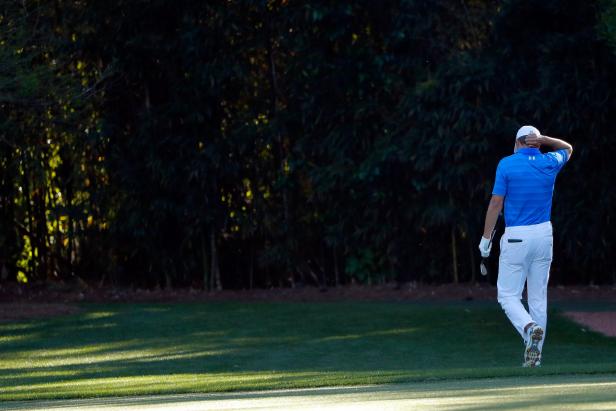Proper decision-making in golf is crucial, especially late in a round when mental fatigue can lead to poor choices. A recent study by the French Institute of Health and Research found that cognitive thinking is impacted when the brain is overworked, leading to impulsive decision-making. This can explain why golfers, like Phil Mickelson and Jordan Spieth, have made critical errors late in major championship rounds. Mickelson and Spieth are known for their cerebral approach to the game, but mental fatigue can affect even the best players.
Mickelson’s collapse at the 2006 U.S. Open and Spieth’s mishaps at the 2016 Masters highlight the importance of managing mental energy on the course. Both players made poor decisions under pressure, leading to costly mistakes. It is essential for golfers to guard their mental energy and avoid overcomplicating decisions, especially when faced with challenging situations on the course. By conserving mental energy and making smart choices, players can avoid the pitfalls of mental fatigue late in a round.
The brain functions similarly to muscles in the body, requiring energy to make decisions and execute tasks. When the brain is overworked, impulse control decreases, leading to impulsive behavior and poor decision-making. This can have a significant impact on a golfer’s performance, especially in high-pressure situations. By understanding the connection between mental fatigue and decision-making, players can take steps to manage their mental energy and avoid costly errors on the course.
In golf, every decision counts, and wasting mental energy on unnecessary choices can lead to suboptimal performance. By conserving mental energy and focusing on essential tasks, players can improve their decision-making skills and avoid brain cramps late in rounds. Making smart choices, like taking a conservative approach when faced with a difficult lie or challenging shot, can help golfers maintain mental clarity and perform to the best of their abilities.
The key to success in golf is not just physical skill but also mental strength and decision-making. By understanding the impact of mental fatigue on decision-making, players can optimize their performance and avoid costly mistakes on the course. Managing mental energy, conserving brain cells, and making smart choices are essential components of a successful round of golf. By applying these principles, golfers can improve their decision-making skills and performance on the course, leading to better outcomes and more enjoyable rounds of golf.


